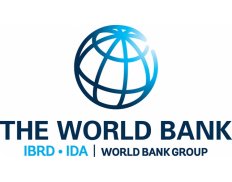Print

AFR RI-The Eastern Electricity Highway Project Under the First Phase of the Eastern Africa Power Int: Provide Technical Assistance for Tariff Study
Details
Locations:Ethiopia
Start Date:Apr, 2023
End Date:Oct, 2023
Contract value: USD 305,335
Sectors: Energy, Macro-Econ. & Public Finance
Description
Project ID: P126579
Project Title: AFR RI-The Eastern Electricity Highway Project under the First Phase of the Eastern Africa Power Int
Bid/Contract Reference No: ET-EEP-330313-CS-CQS
Scope of Contract: The services include but are not limited to:
Task 1. Determination of Annual Revenue Requirement (ARR) and procedures and formulae for periodic adjustment:
This task will be performed for each of the power utilities to assess their respective cost of service and the needed adjustments.
Task 1. a: ARR for EEU.
The Consultant will develop methods, procedures, and formulae for the determination and periodic adjustment of the revenues that EEU should be entitled to collect for efficient provision of distribution and retail services to its customers. The ARR and adjustments thereof shall cover:
Operating costs (OPEX) to efficiently run the company (operation and maintenance of distribution networks, retail commercial activities, corporate functions, etc.);
Investments costs (CAPEX) for the rehabilitation, renovation, upgrading and expansion of distribution and commercial infrastructure needed to provide electricity services meeting applicable quality standards;
Costs of energy purchases incurred to efficiently provide electricity services (sales plus allowed losses).
Task 1.b: ARR for EEP.
The Consultant will develop methods, procedures, and formulae for the determination and periodic adjustment of the revenues that EEP should be entitled to collect for efficient expansion and operation of its own generation facilities, efficient provision of transmission services, system operation, and power purchase from IPPs. The ARR and adjustments thereof shall cover:
OPEX to efficiently run the company (O&M of the generation plants, transmission grid, system operation, power purchase, planning, corporate functions);
CAPEX for the rehabilitation, renovation, upgrading and expansion of generation, transmission and system operation infrastructure needed to provide services meeting applicable quality standards;
Costs of energy purchases to supply EEU’s demand.
Task 2. Financial Modeling:
The Consultant will provide a financial model for the sector, which will allow for sound financial planning at the utility level reflecting: (i) the identified ARRs; (ii) indebtedness capacity and financing instruments/options; and (iii) financial ratios typical for the industry for each of the power utilities. The financial model will be designed so as to allow to capture of alternative scenarios of investment, demand, generation costs, transmission and distribution (T&D) costs, commitments under power purchase agreements (PPAs) or other contracts and variables. Thus, the model will enable the periodic adjustment of each of the components of the ARR to address changes in the main cost drivers and ensure cost recovery. The model shall include the possibility to parameterize different scenarios of managerial, technical and commercial efficiency, as well as the tariff revision period and the implementation of the tariff changes over a specific period of time. The model shall include the following modules and allow for the projection of:
Demand;
Capital expenditure;
Operating and Maintenance Expenditure;
Revenues;
Long term Debt;
Balance Sheet;
Profit & Loss;
Cash Flow.
Working capital requirement
The model will also include a separate and user-friendly module of initial conditions and hypothesis organized by nature of the information. The model should be developed in Excel and be handed over with a user manual. The consultant shall provide training and capacity building to EEP and EEU on construction and use of the financial model.
TASK 3. Recommendations to improve the existing tariff structureand its periodical adjustmentsfor electricity service provided by EEU to its customers.
The Consultant will review the existing tariff structure and propose amendments to provide consumers with right signals on total costs of efficient service provision and promote rational electricity consumption. Options to be analyzed comprise, among others: (i) binomial time of use (TOU) tariffs with separate energy and demand charges; (ii) tariff differentiation per voltage level; (iii) seasonal tariffs. The identified options shall take into account economic efficiency, financial viability and social objectives. In particular, they should allow for socially-sensitive rates that include cross-subsidy towards economically weak consumer categories, and cost-reflective rates for consumers with ability to pay, identified based on consumption histograms. The recommendations should incorporate provisions for allocating fixed and variable costs incurred for service delivery in each segment of the electricity supply chain (generation, transmission and distribution) across tariff categories. Finally, the Consultant will develop formulae for the quarterly adjustment of the various rates that form part of the tariff structure.
TASK 4. Recommendations to establish a new tariff structure and its periodical adjustments for wholesale electricity provided by EEP (to EEU and its large customers) and EEU( toits Medium, low voltage industrial customers, general tariff and residential customers).
The Consultant will review the existing tariff structure and propose amendments to make it simpler, provide consumers with right signals on total costs of efficient service provision, and promote rational electricity consumption. Options to be analyzed comprise, among others: (i) binomial time of use (TOU) tariffs with separate energy and demand charges; (ii) tariff differentiation per voltage level; (iii) seasonal tariffs. The identified options shall take into account economic efficiency, financial viability and social objectives. In particular, they should allow for socially-sensitive rates that include cross-subsidy towards economically weak consumer categories, and cost-reflective rates for consumers with ability to pay, identified based on consumption histograms. The recommendations should incorporate provisions for allocating fixed and variable costs incurred for service delivery in each segment of the electricity supply chain (generation, transmission and distribution) across tariff categories. Finally, the Consultant will develop formulae for the quarterly adjustment of the various rates that form part of the tariff structure.
TASK 5. Strategy for the transition period
The Consultant will design a strategy (“glide path”) to move progressively from current situation to the “steady state” condition, in which a fully cost-recovery tariff structure is enforced. The duration of the transition period and the progressive adjustments to converge to the “steady state” condition will be determined considering political and social acceptability. Thus, the strategy will define formulae for adjusting the different rates under the tariff structure with adequate progression; the time schedule for effective application of the revised tariff regime and modalities for communication.
TASK 6. Support to EEP and EEU in fulfilling the regulatory requirements:
Assist EEP and EEU in the process of preparing and submitting the respective tariff applications to EPEA in line with the EPEA directive (Visit the website of the regulator using the link http://www.eea.gov.et/index.php?option=com_content&view=article&id=356&Itemid=344&lang=en), participating in public hearing process, providing clarifications and modifications as sought by the regulator, and obtaining the tariff approval from the regulator and subsequently from the Government. This may include the preparation of summary presentations and short documents explaining the key features of the tariff proposal. The process of a preliminary review of tariff proposal, detailed discussions, and final approval with the related clarifications and modifications is expected to take up to 120 days in the normal course of EPEA/EEA’s business. The consultant shall assist the client for a duration of one month after the submission of the Final Report to EPEA/EEA.
Duration of Contract: 6 Month(s)

